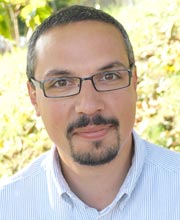 Dr Giuseppe Feola engages in interdisciplinary research with a focus on understanding how and why social-ecological systems transform along particular pathways, and under what conditions societal change towards sustainability may occur. Giuseppe’s research has three main foci, namely sustainability, resilience and transformation of agriculture and rural systems, alternative economies and grassroots innovations for sustainability, social change theory and sustainability.
Dr Giuseppe Feola engages in interdisciplinary research with a focus on understanding how and why social-ecological systems transform along particular pathways, and under what conditions societal change towards sustainability may occur. Giuseppe’s research has three main foci, namely sustainability, resilience and transformation of agriculture and rural systems, alternative economies and grassroots innovations for sustainability, social change theory and sustainability.
Recent publications
Giuseppe has recently published two papers in leading international journals. In “Societal transformation in response to global environmental change: A review of emerging concepts”, published in AMBIO, Giuseppe contributes to the emerging scientific debate on societal transformation by discussing the potential and limitations of different transformation concepts, and by critically reflecting on the challenges of social research to support transformative change. Giuseppe explains: “There is a growing interest in societal transformation both as an academic concept as a goal for public policy-making. However, there is no agreement on what societal transformation means, , what it should entail, and how best it can achieved. With this paper I seek to provide structure to the scientific dialogue and to reflect on the challenges of social research on the subject of social transformation.”
In, “Researching farmer behaviour in climate change adaptation and sustainable agriculture: lessons learned from five case studies”, published in the Journal of Rural Studies, Giuseppe and his co-authors have developed an analytic framework that other scholars can use when designing future interdisciplinary studies on farmer behaviour. The framework facilitates interdisciplinary research on farmer behaviour by opening up spaces of structured dialogue on assumptions, research questions and methods employed in empirical research.
Giuseppe’s publications are available at: www.giuseppefeola.net/publications
International visit
Between January and March 2015 Giuseppe was visiting scholar at the Center for Systems Integration and Sustainability (CSIS) at Michigan State University, a visit that was funded by a British Council Researcher Links grant. Through this visit, Giuseppe has strengthened his collaborations with leading researchers in the interdisciplinary research field of human-environment interactions. Giuseppe was also invited to give a research seminar at CSIS. In his talk, titled “Do informal institutions adapt to the influences of environmental and economic changes? Insights from a Colombian peasant community”, Giuseppe presented the findings of the recently concluded research project ‘Adaptation between resilience and transformation: a Colombian case study’ funded by the British Academy and the Leverhulme Trust.
To find out more, visit Giuseppe’s staff profile.
